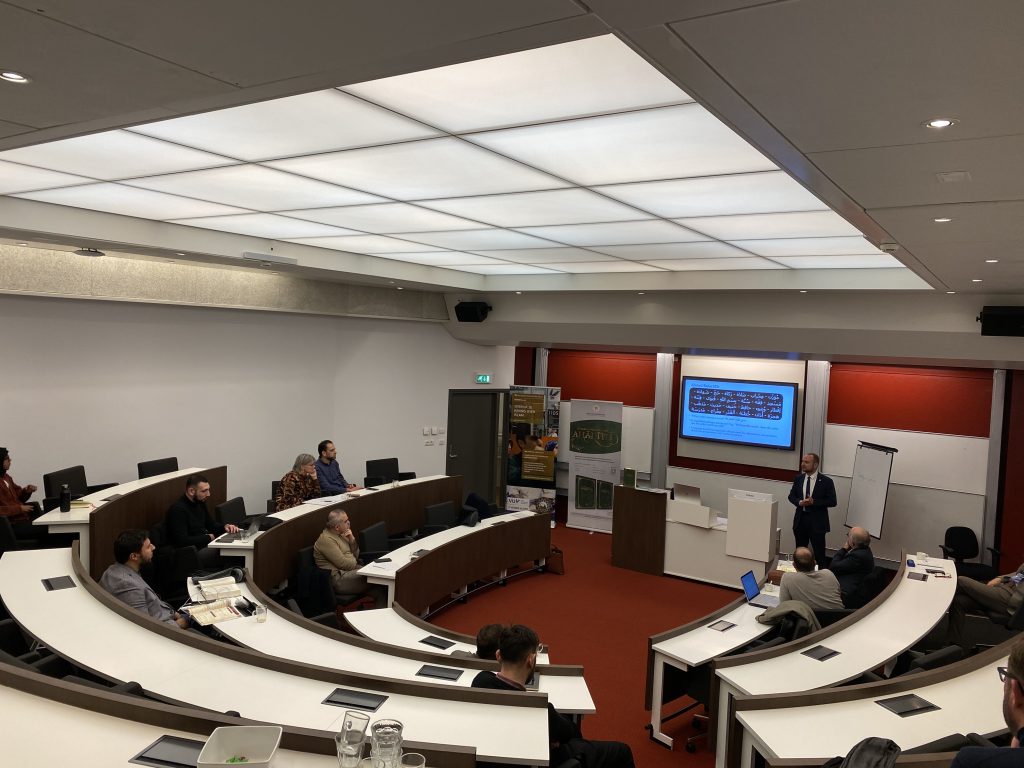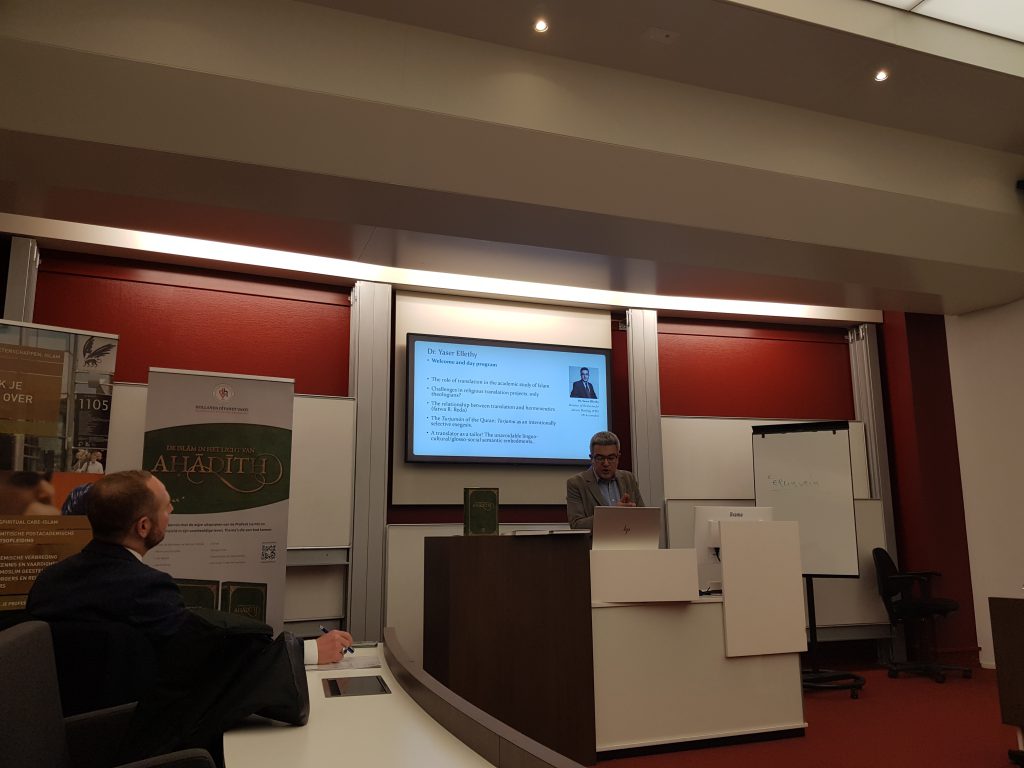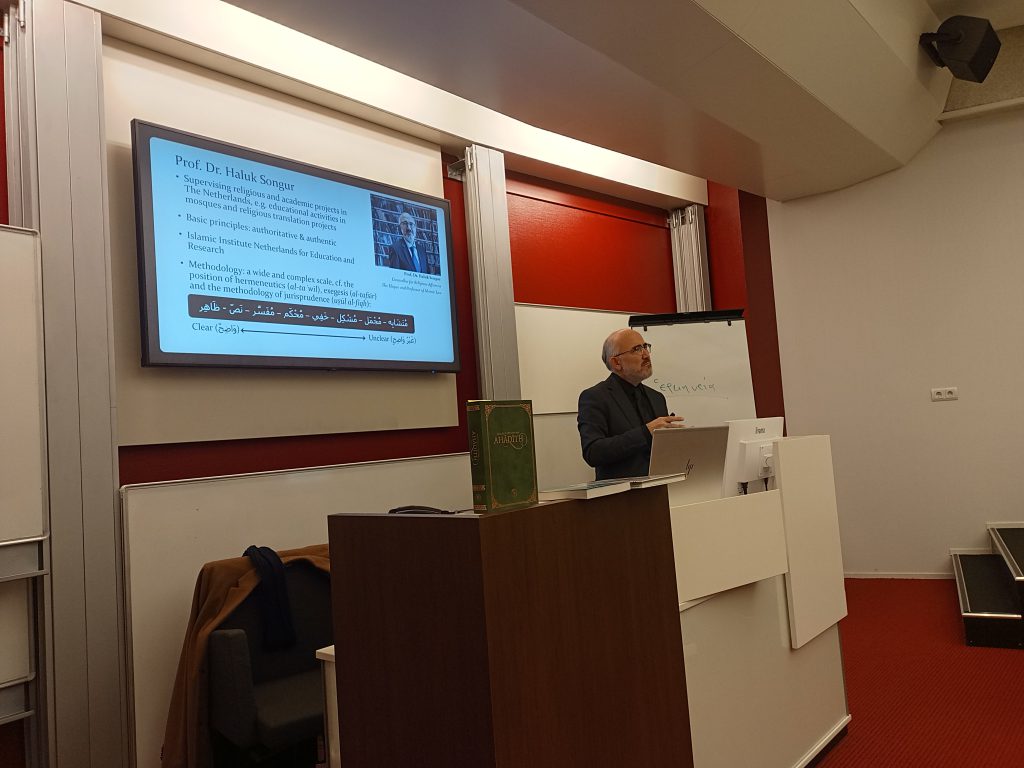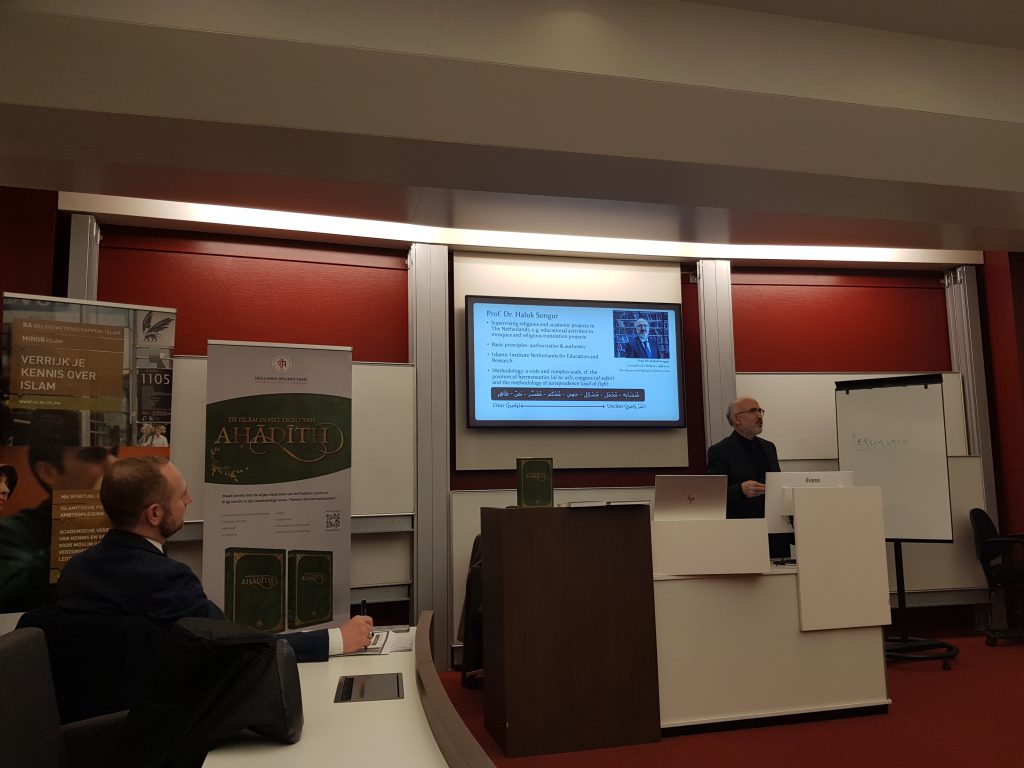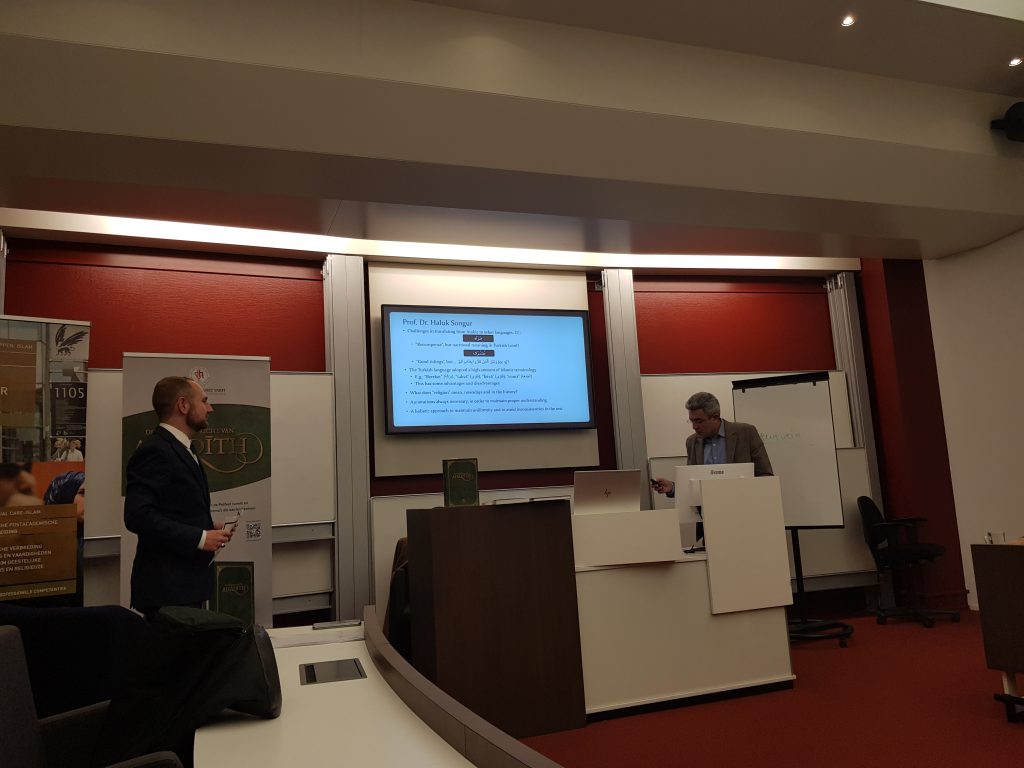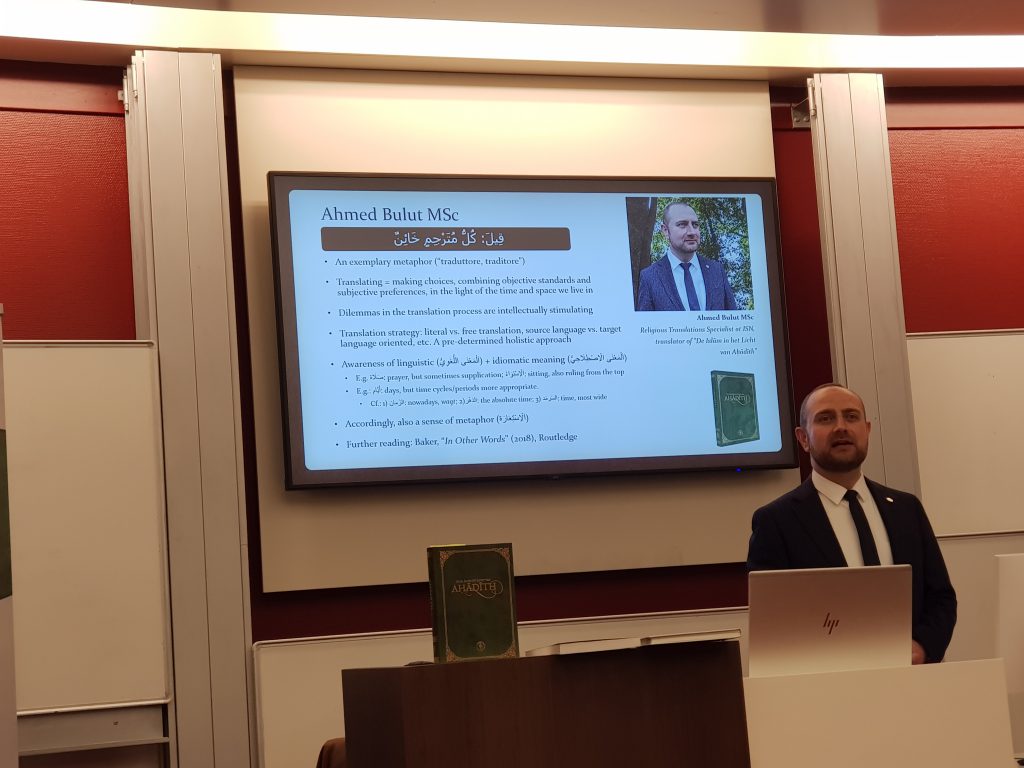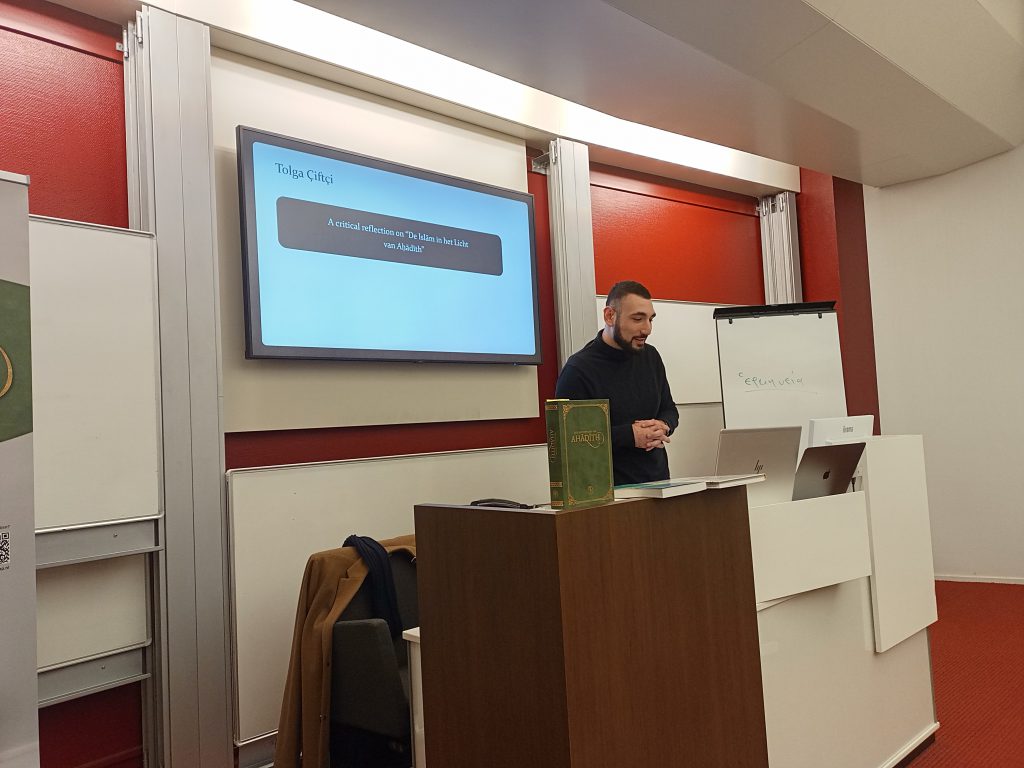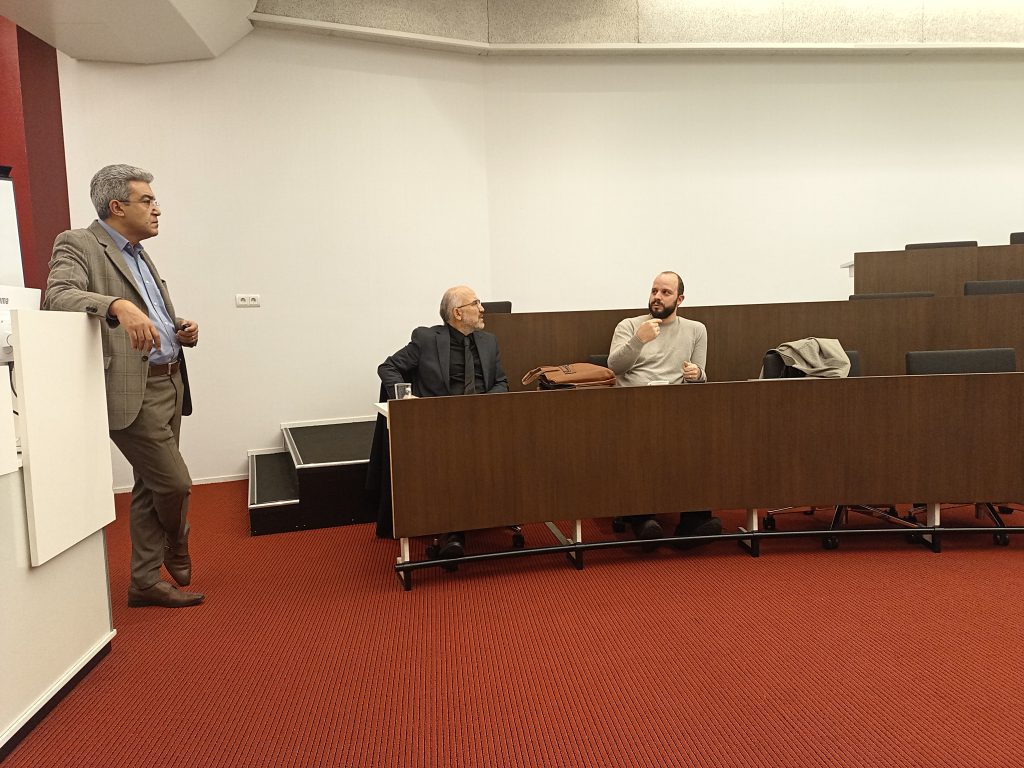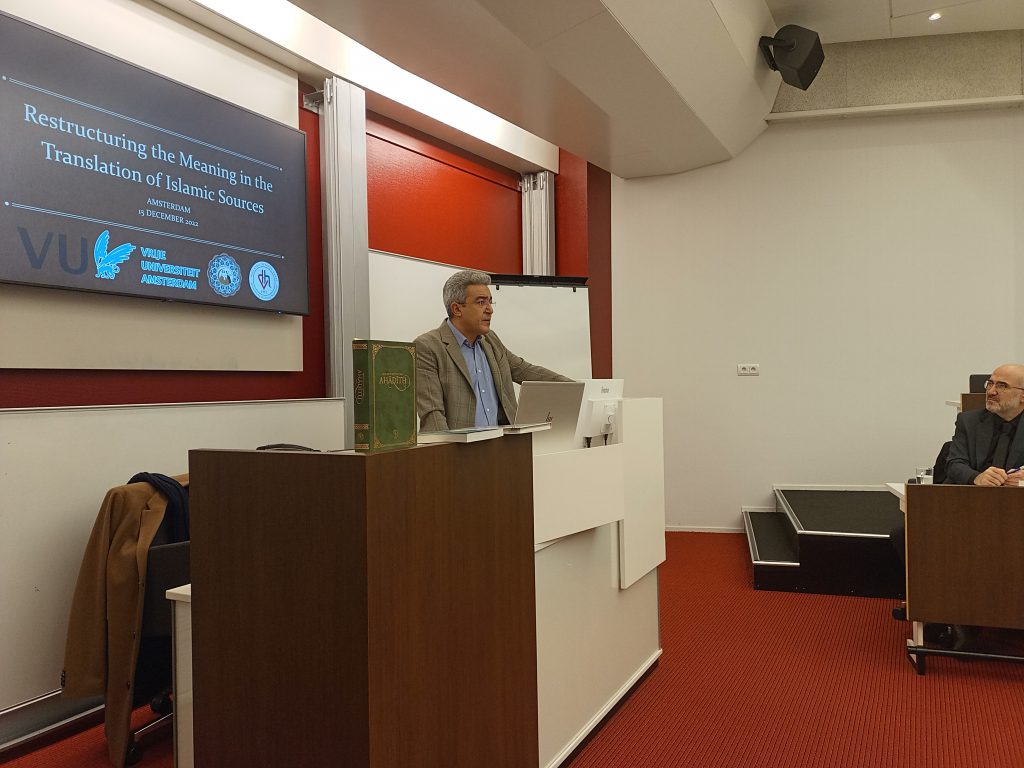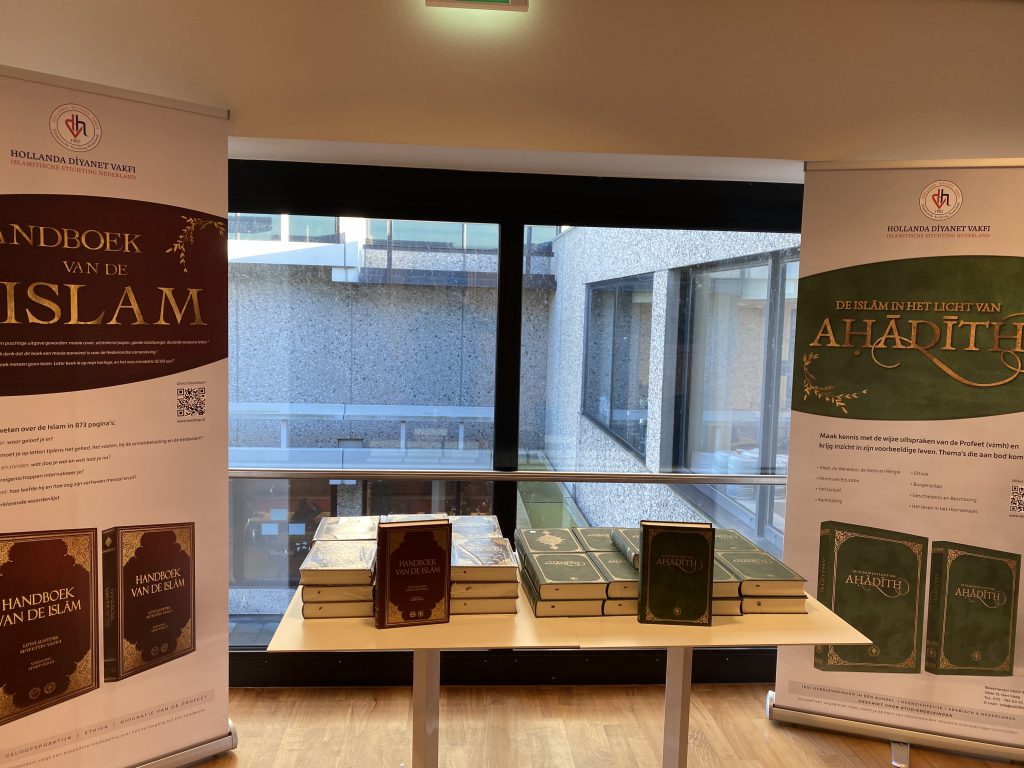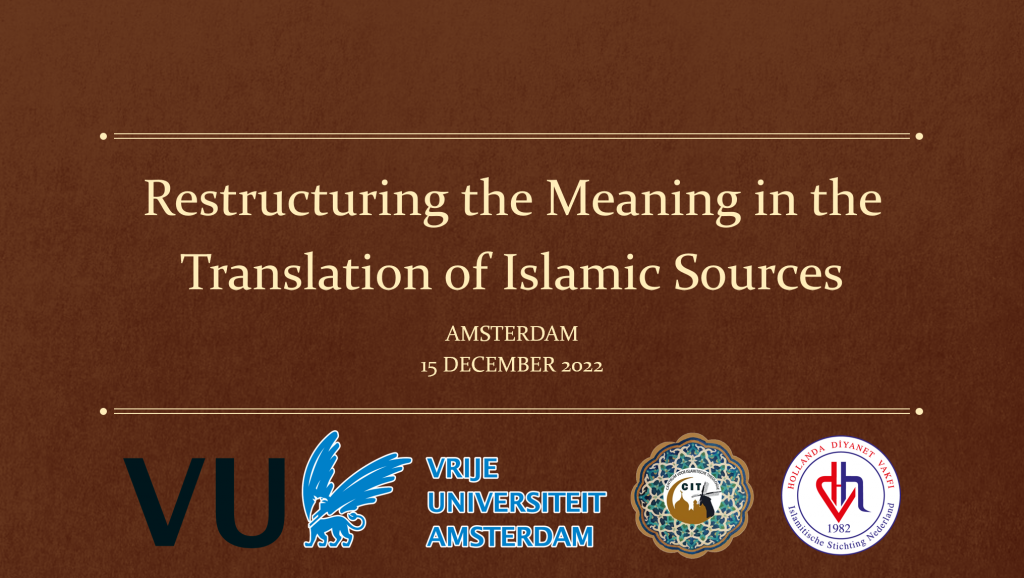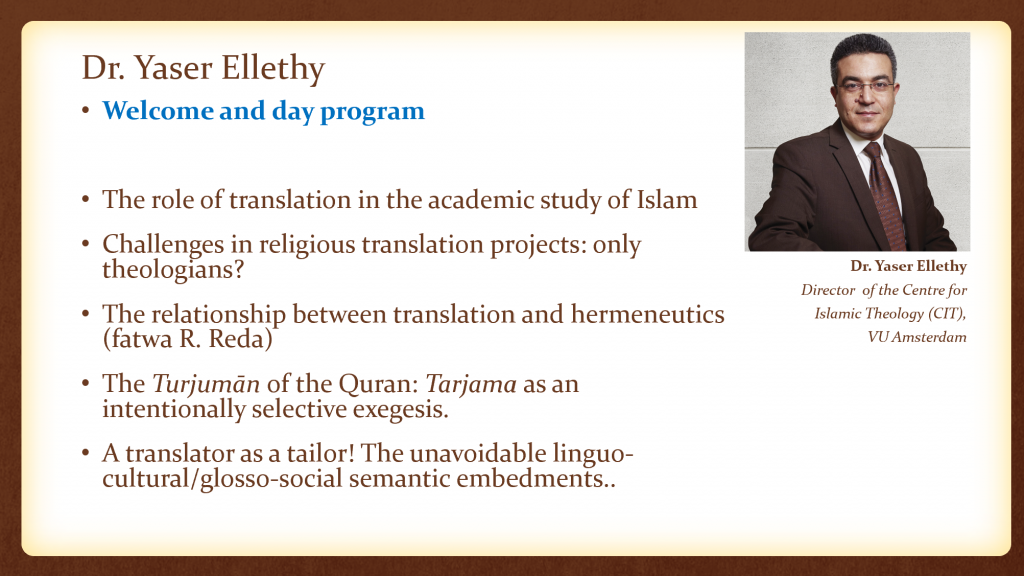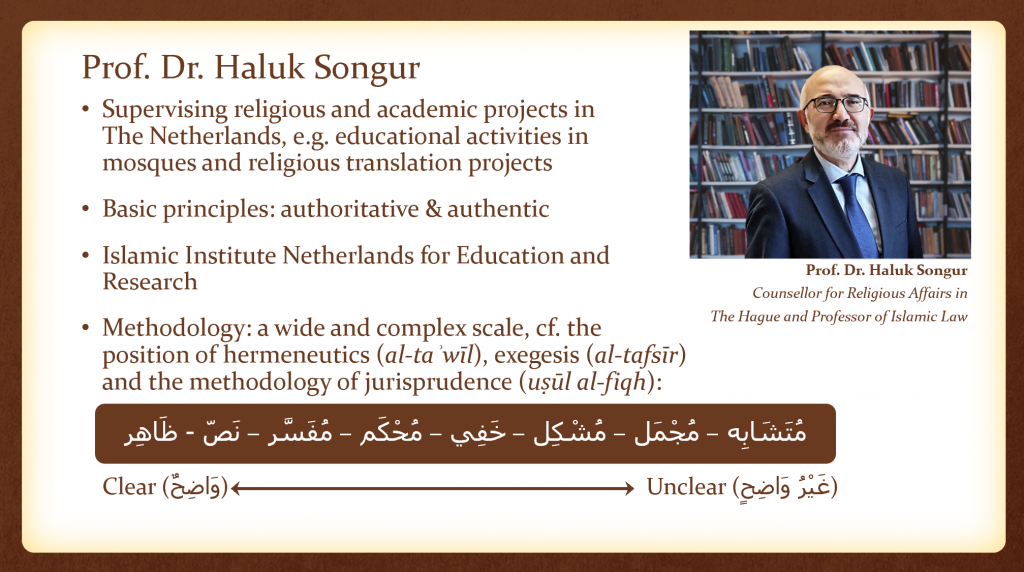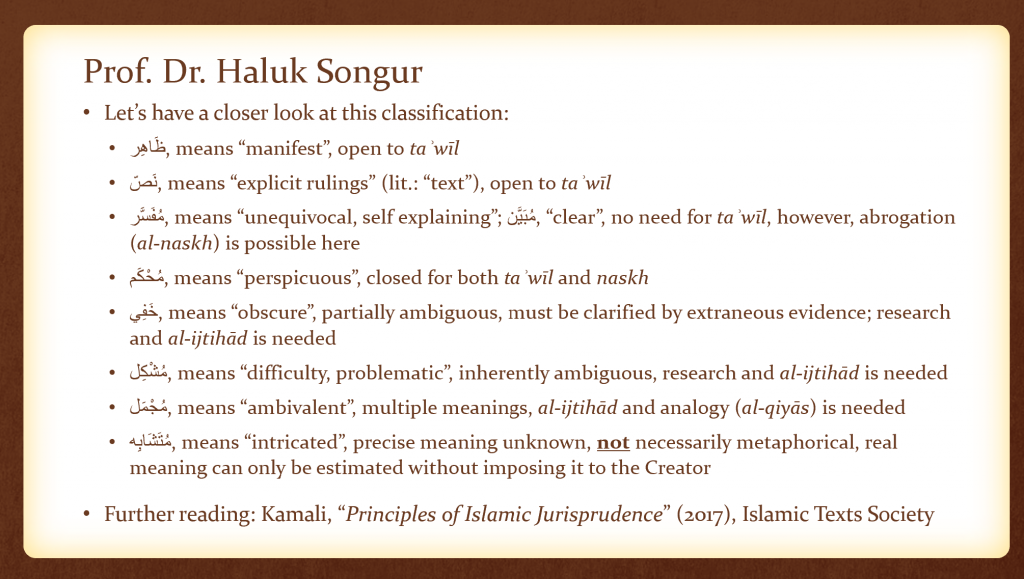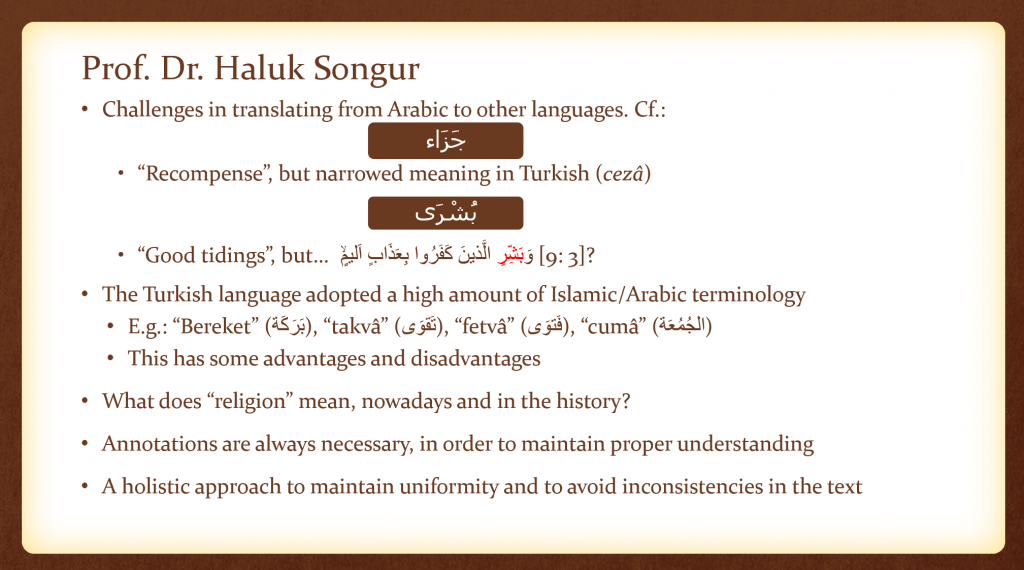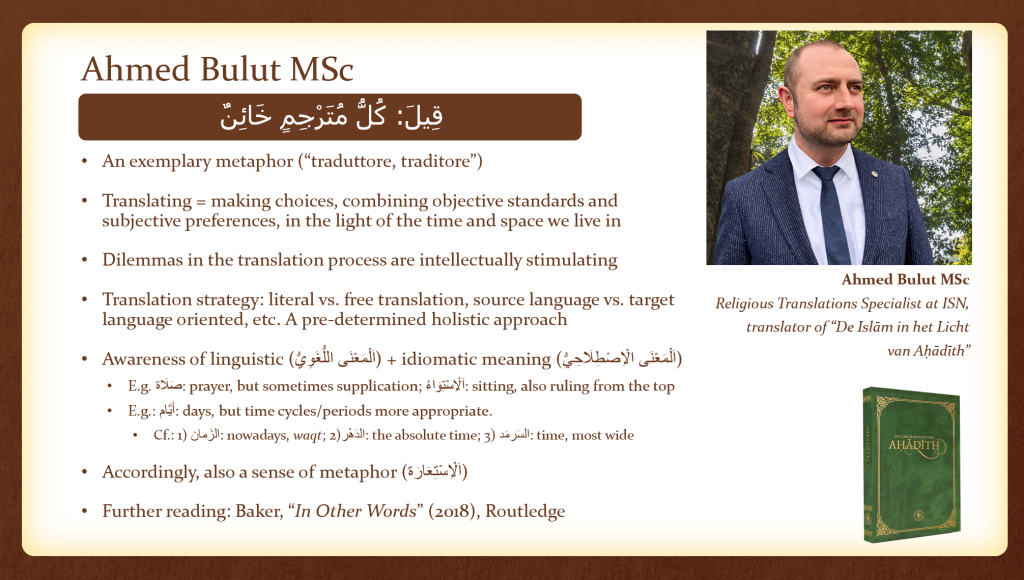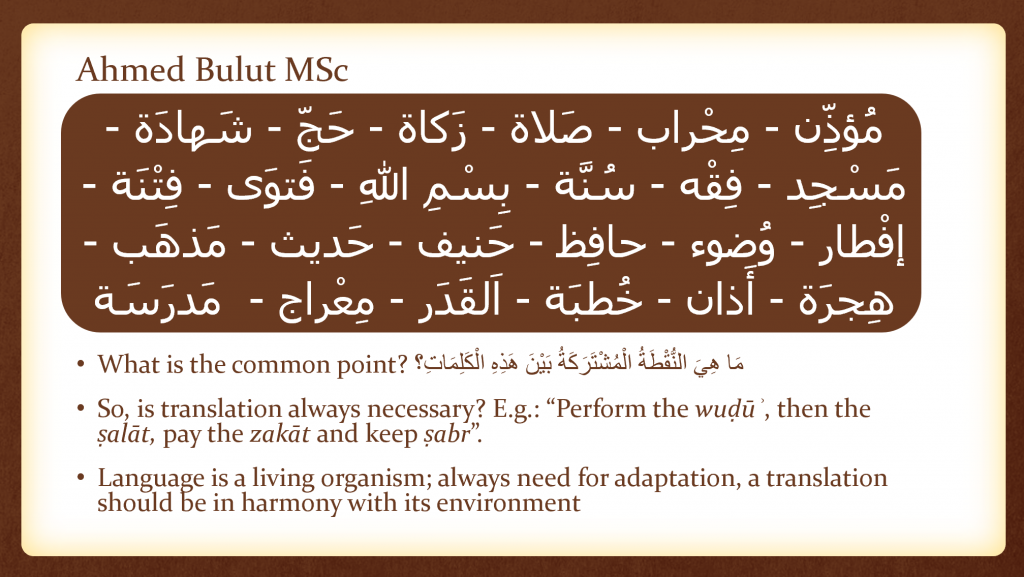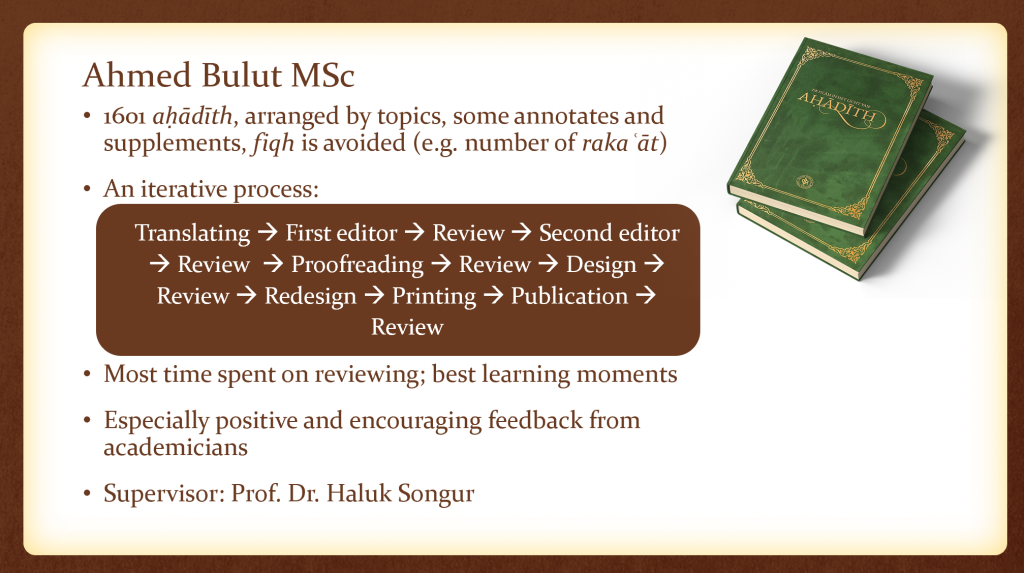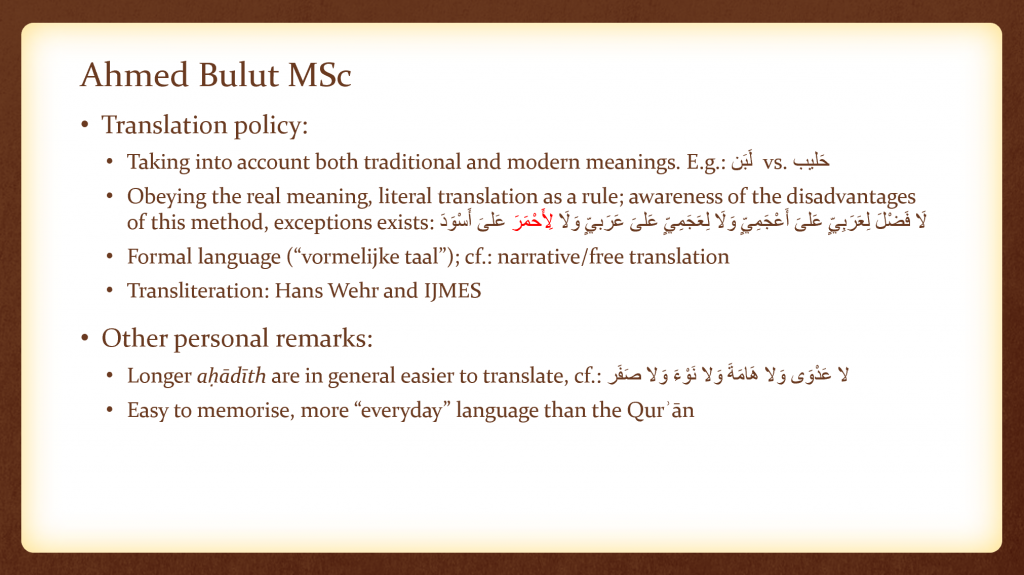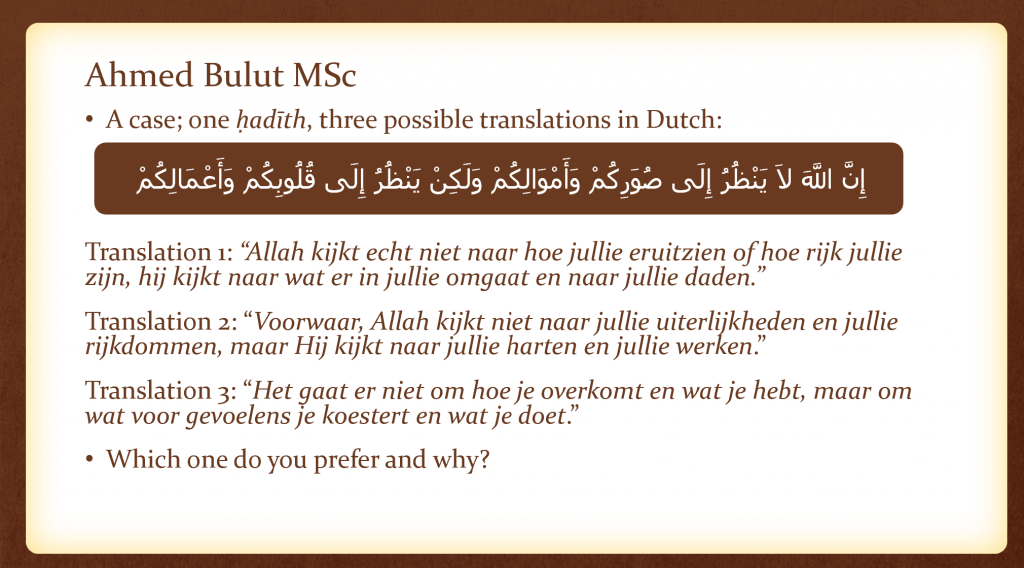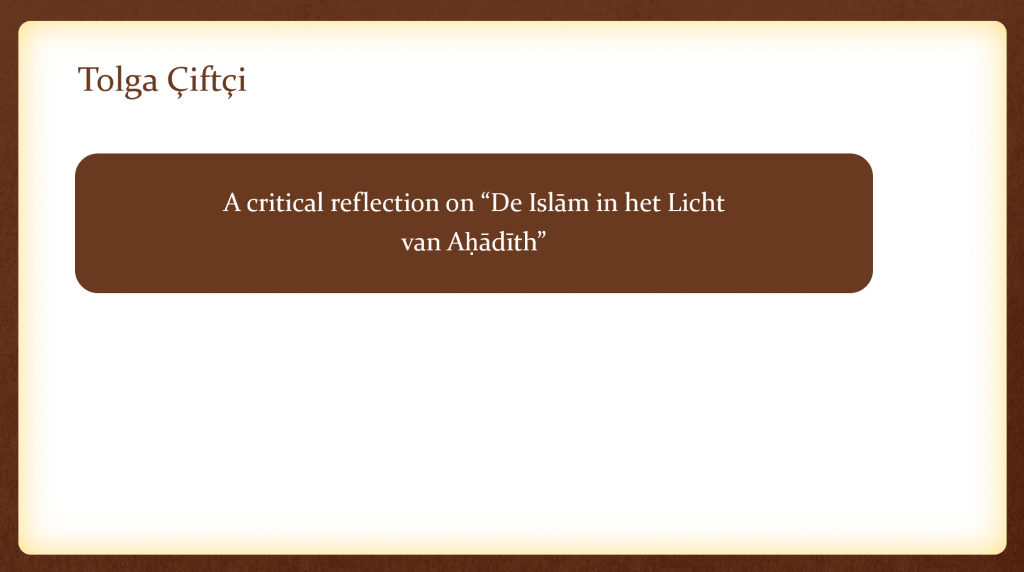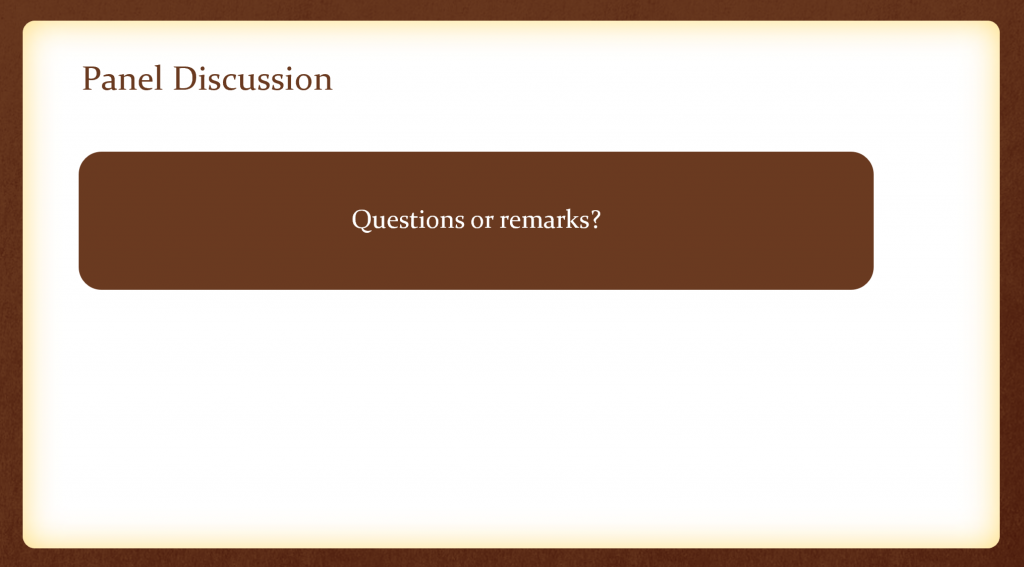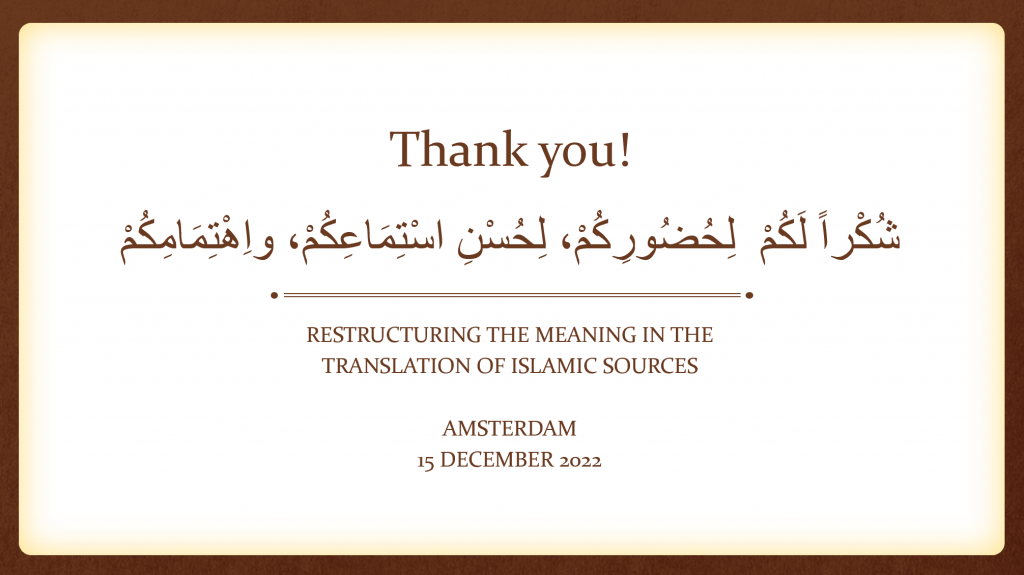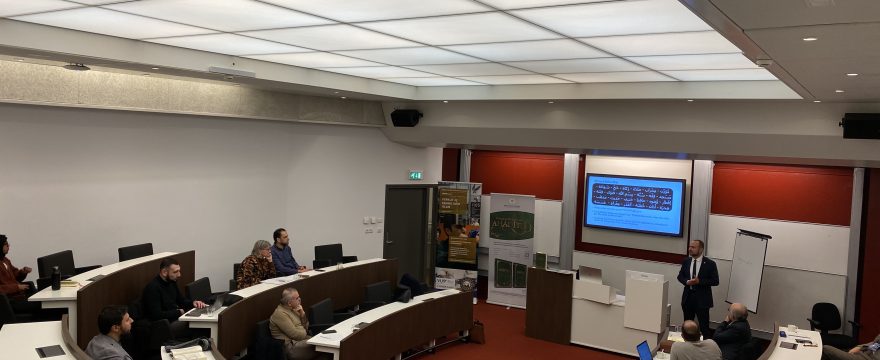The Islamic Foundation of the Netherlands (ISN) held a panel discussion on the translation of basic religious sources, in collaboration with the Center for Islamic Theology (CIT) of the Free University of Amsterdam (VU).
The panel discussion, entitled “Restructuring the Meaning in the Translation of Islamic Sources”, took place on Thursday 15 December 2022 in the Agora Complex of the VU University. The program was attended by Dr. Yaser Ellethy (Director of the Center for Islamic Theology, VU), Prof. Dr. Haluk Songur (Counsellor for Religious Affairs in The Hague and Professor of Islamic Law), Ahmed Bulut (Religious Translations Specialist at ISN), several academicians, translators, religious officers, students and others interested.
The meeting started with a welcome speech by Dr. Yaser Ellethy. He then delivered a speech on the need for translations. In his speech, Ellethy reflected on how concepts such as al-taʾwīl (“hermeneutics”) and al-tafsīr (“exegesis, Qur’an commentary”) are understood and the relationship between these concepts. He also stressed the importance of a good understanding of the Arabic language, terminology and culture. He gave examples of translations from Arabic that do not reflect the actual meaning of the original work. He also gave examples of translations of verses from the Qur’an that do not do justice to their meaning. Ellethy also underlined the importance of multidisciplinary collaborations and gave economics as an example. Finally, Ellethy discussed the importance of understanding terms from other religions that are used to translate Islamic terms and indicated that words used in translations often have a different meaning than translators have foreseen. He gave the examples of al-tawḥīd, al-shirk, and al-īmān with possible translations that cannot be understood by everyone.
After that, Prof. Dr. Haluk Songur spoke to the audience. In his speech, Songur indicated that the translation of basic Islamic texts into Dutch is a long-term comprehensive project. He mentioned that the book “The Islām in het Light of Aḥādīth” is a part of that process. Songur expressed the main reason and purpose of these translations in the following words: “It is necessary that if those living in the Netherlands want access to Islamic texts, they actually get access to those texts. In that context, we wish to contribute to the Dutch literature by translating basic Islamic sources and works into Dutch, in an authentic and reliable way. After the book ‘The Islām in the Light of Aḥādīth,’ the translation project ‘An Annotated Rendering of the Qur’an’ will be completed and published within a year,” Songur said. He stressed the importance of translation methods, emphasizing that linguistics (al-lughāwiyyāt), logic (al-manṭiq), dialectics (al-kalām), methodology of Islamic jurisprudence (uṣūl al-fiqh) and similar sciences are very important in the translation of Islamic texts such as the Qur’an and the aḥādīth. By using examples, he showed that – in fiqh methodology – words in texts are classified according to the degree of their clarity, about to indicate the meaning of a word in the text. For this reason, Songur emphasized the importance of a holistic approach in translating texts. He ended his speech with examples of mistranslations.
Afterwards, Ahmed Bulut delivered a speech. Like the previous speakers, he addressed the Arabic saying kullu mutarjimin khāʾinun (“every translator is a traitor”), which originates in the Italian language (“traduttore, traditore”). He explained that this proverb can be confrontational for translators, but that there is a grain of truth in it, since translating is a human action; and although there are objective standards with which a translator works, there are also personal preferences that he will reflect in the translation. He stated that translating means making choices. He then focussed on the different translation strategies (e.g. literal versus free, source language versus target language oriented). According to Bulut, it is important that a translator determines his translation policy prior to his translation, and that he consistently follows his pre-determined method. He indicated that a translator should be aware of the linguistic and idiomatic meanings, and provided some examples of it. He also stressed that translators should have a feeling for metaphorical expressions, and admitted that he sometimes may have overlooked metaphors in his translations and as such may translated them too literally. Subsequently, Bulut gave examples of Islamic terms included in the most well-known explanatory dictionary of the Dutch language, which is “Van Dale”, and asked the question to what extent these words can be assumed to be known. He then gave technical information about the translated work “The Islām in the Light of Aḥādīth” and explained the parts of the translation process. Finally, Bulut explained several points regarding the translation of the aḥādīth, including his choice for literal translation, and awareness of traditional and modern meanings of Arabic words.
Finally, Tolga Çiftçi spoke, a former Master’s student Spiritual Care at the VU. He reflected on the translated work “The Islām in the Light of Aḥādīth” through the concept of “semantic loss in translating sacred texts”. Çiftçi already conducted research on religious translations, and in his study, he distinguished between “undertranslation”, “overtranslation” and “mistranslation”. He explained that translators should minimize the semantic loss, which by definition occurs when translating texts.
The speakers emphasized the importance of translation from different angles. There was a high degree of consensus, especially with respect to the methodology, knowledge of and insight into the Arabic language and the way of approaching (classical) texts. The speakers considered the phenomenon of translation in a weighted and profound way.
During the panel discussion, topics related to religious translations were discussed. Afterwards, Dr. Yaser Ellethy thanked the attendees for their contribution and expressed his wish to meet each other again at similar programs. The participants experienced the program as challenging, interactive and intellectually stimulating. During the program, there was a book stand, where Dutch publications of ISN were displayed. The program ended with a small ḥalāl banquet.
